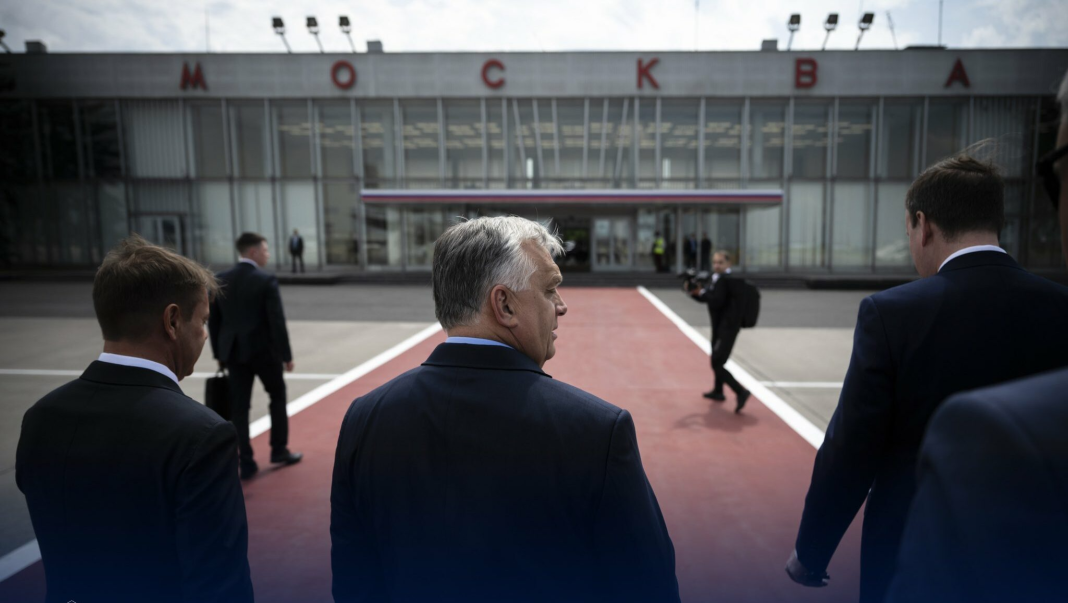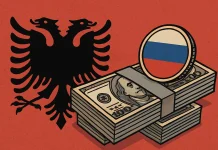Josep Borrell, the EU’s Chief Diplomat, removed Hungary’s right to host the upcoming meeting of foreign and defense ministers, a routine event managed by the country holding the EU Council presidency. This decision followed Viktor Orban’s self-proclaimed peacekeeping efforts between Russia and Ukraine shortly after Hungary assumed the presidency of the Council of Europe. Despite numerous objections from EU leaders, Orban continued his diplomatic tour, which media often portrayed as a peacekeeping endeavor, despite lacking any official mandate from the European Union.
Jona Plumbi
Hungarian Prime Minister Viktor Orban does not possess a personal peace plan to resolve the Russia-Ukraine conflict. Nevertheless, he spent July on a tour that took him to Kyiv, Moscow, Beijing, and Washington, pursuing a personal mission that provoked the ire of EU leaders.
His self-declared peace mission was focused on achieving peace in the Russia-Ukraine war. ‘Peace will not come on its own in the Russia-Ukraine conflict; someone needs to make it happen,’ Orban stated in his social media posts, where he also frequently warned of the risk of escalation if no action is taken.
The situation began when Hungary assumed the presidency of the Council of Europe on July 1, a role that will last until December 31, 2024. The EU Council presidency rotates every six months among the 27 member states. The country holding the presidency manages the Council’s work and represents all member states in negotiations with other EU institutions.
Orban’s tour, which started immediately after Hungary took over the presidency, was closely tied to his purported peace mission, with the narrative being fueled by propaganda and negative portrayals.
This was further complicated by Orban’s visit to Moscow, where Putin described the Hungarian Prime Minister’s visit as a meeting with a Council of Europe representative, despite repeated assertions from senior EU officials that Orban did not have a mandate for such a role in these meetings.
The confusion was further amplified by the media’s ‘copy-paste’ approach to reporting the meetings, often disseminating Russian and Chinese propaganda alongside Orban’s narrative supporting his political ‘movement.’ Coverage from even prominent Albanian media outlets depicted Orban’s meetings as attempts to broker a possible peace deal in Ukraine. What was notably absent from these reports was the crucial fact that Hungarian President Orban lacked EU authorization for such a peace mission.


News like this was observed in Albanian after Orban’s visits to Russia, China, and Turkey.








In reality, EU institutional leaders responsible for shaping union policies were quick to emphasize that Orban had no EU authorization for his peace initiative between Russia and Ukraine.
Charles Michel, President of the European Council, made it clear in a letter to Viktor Orban at the start of July that the rotational presidency of the Council of Europe does not involve representing the Union on the international stage.’ Michel conveyed this message to Orban prior to his meeting with Vladimir Putin in Moscow. The same stance was reinforced by EU High Representative Josep Borrell on July 5.
Orban himself acknowledged the lack of a mandate for this mission.
‘I am not negotiating on behalf of anyone. I repeat: Hungary does not have the mandate – nor does any President of the EU Council – to negotiate on behalf of the European Union,’ he told Hungarian radio during a brief stop in Budapest between his meetings with Ukrainian President Volodymyr Zelensky and Russian President Vladimir Putin.
Despite these public statements and the ongoing concerns raised by the EU, the media often referred to Orban’s meetings during this tour as a ‘peacekeeping mission,’ without providing the necessary context to understand that these meetings were, in fact, a form of Hungarian propaganda.











